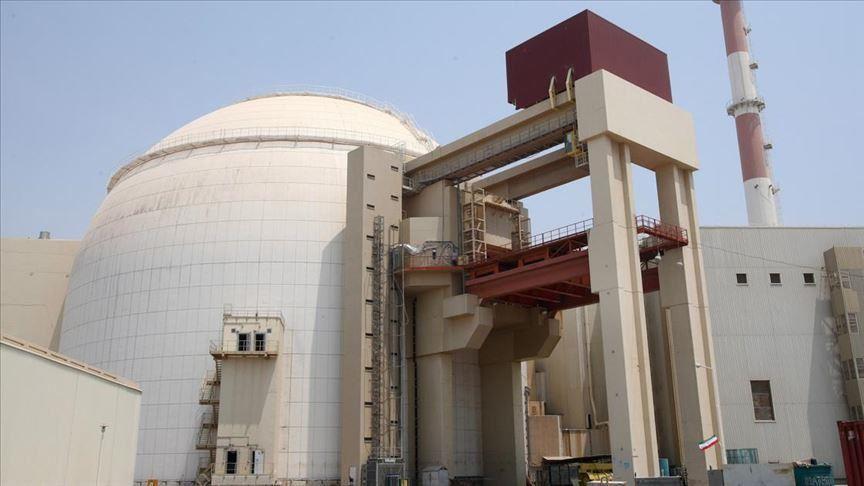Expert opinion: Events in Ukraine to slow down or accelerate US-Iran nuclear deal? Scene-setter by Maxim Petrov
US President Joe Biden's national security adviser Jake Sullivan visited Israel in late 2021. There, in an interview with local TV channels, Sullivan disclosed a convenient schedule for signing a new nuclear deal between Iran and world powers, which is believed to sit well with the US government. The deal envisages Iran's refusal from producing nuclear weapons in an exchange for the lifting of the most severe economic sanctions imposed by the US. This would allow Iran to increase the volume of oil export by several times and improve the economy. For its part, the US could achieve (within the deal) Iran's refusal of its plans to become a nuclear power.
Sullivan has even mentioned that positive news about the deal could appear within several weeks. This happened in December 2021. However, more than four months have passed since then, while the deal has not yet been signed.
Today, the issue of the Islamic Revolutionary Guard Corps (IRGC) is considered the main obstacle to the deal. The IRGC is actually the core of the Iranian regime.
The IRGC manages a separate 120,000-strong army (religious soldiers and officers are recruited), including elite military units and missile troops, intelligence and counterintelligence services, as well as security forces that suppress social protests.
Moreover, the IRGC controls (directly or through proxies) almost 80 per cent of the Iranian economy.

The IRGC is charged with the country's internal security, economy, and military operations overseas thanks to Ayatollah Ali Khamenei - the Iranian spiritual leader, and lifetime officeholder having ultimate power in the country.
Iranian incumbent president Ebrahim Raisi (the president in Iran resembles an inferior prime minister to a strong authoritarian ruler - a spiritual leader in Iran) and most of the parliamentarians also have relation to the IRGC.
The IRGC during the period of the US President Donald Trump’s power not only was subjected to sanctions but was also included in the US list of terrorist organizations.
Iran demands to remove the IRGC from that list, however, Biden’s administration refuses to proceed. Frankly speaking, the US proposed a compromise – it is ready to exclude the IRGC from the list of terrorists if Iran abandons the revenge plan regarding the US officials, revenge for the assassination of the head of the Quds Force (the IRGC’s unit in charge of covert operations outside Iran) Qassem Soleimani. He was killed by a US guided-missile on January 3, 2020. The Iranians then officially announced the need for revenge. Today, they are unwilling to give up their intentions. The US Department of Justice is investigating the IRGC plot to assassinate former US National Security Adviser, John Bolton and Secretary of State, Mike Pompeo.
In principle, other severe sanctions have also been imposed against the IRGC while the US is not going to lift them. The IRGC will not be taken out from the US economic isolation. However, to remove the IRGC from the US official list of terrorists is a matter of principle for the Iranian regime. The Iranians point out that Trump unilaterally withdrew the US from the nuclear deal, which Iran generally complied with. Moreover, Trump even added the most important military-political and economic structure, with which almost most of the Iranian leaders are connected, to the list of terrorists. That is, it is a matter of honour for the Iranians.
In turn, it is difficult for Biden to accept the demand to remove the IRGC from the US list of terrorist organizations, as Iran does not refuse the revenge aspirations for Soleimani's death. If Biden’s administration agrees, then it would mean Washington does not consider those who intend to kill former high-ranking US officials as terrorists. Perhaps some swing voters will not forgive this, and Biden may lose many votes of ordinary voters in case of such a decision. The US mid-term elections will be held in November 2022. Thus, negotiations on a nuclear deal between the US and Iran have stalled.

Israeli military-political analyst and well-informed security specialist, Amos Harel, said that the US security establishment is now taking a more aggressive stance on Iran's involvement in terrorist attacks throughout the Middle East (Iranian proxies' missile attacks on bases of the US and its allies are taken into account, with the help of which the Iranians put pressure on the US, pushing it to conclude a nuclear deal; Iran thinks that it’s impossible for the US to simultaneously resist Russia, Iran, and China).
“On the other hand, the US Department of State is more interested in reaching a nuclear deal with Iran,” Harel added.
The Pentagon and the Joint Chiefs of Staff are underlining additional clauses about the deal, which is being prepared. For example, they are concerned that the deal will not be extended after 2031. They are also concerned about the way of overseeing Iran's nuclear facilities.
Another problem is that the US leadership has focused on Ukraine’s issue. Russia's policy is seen as an urgent problem in the latest version of the US National Security Strategy, the document outlining the main features of the US security policy, however, Iran is of less concern to the US.
The conflict in Ukraine and the confrontation with Moscow became a pressing problem for Washington just before the midterm elections to the Congress, scheduled for November 2022. The upcoming elections show that Biden and his administration mainly focus on domestic problems.
Iran does not intend to rapidly sign the deal either. The events in Ukraine resulted in a sharp rise in oil prices, which slightly eased the economic situation for Iran, which is an oil-exporting country.
Finally, the US has repeatedly stated that Iran was too close to obtaining nuclear weapons with the necessary substance. Senior US officials say that when the nuclear deal with Iran was struck in 2015, it took about a year for the country to enrich uranium up to a weapons-grade level. Tehran halted the work during that period.
However, Trump withdrew the US from the deal in 2018 and Tehran resumed uranium enrichment a year later. As for Iran, only a few weeks are left before the creation of a nuclear weapon. This may result in a final breakdown in the negotiations at any time if the US considers that the deal has no sense in this scenario.
Israeli Defence Minister Benny Gantz told foreign ambassadors in early April 2022 that a month is left for Tehran to produce a sufficient volume of enriched uranium to create one bomb if it wants (according to the estimations, it would take more than a year to place a bomb into a ballistic missile warhead).

In this regard, the US and Israel from time to time talk about plan B. This is a military operation to destroy Iranian nuclear facilities, mainly, Fordow Fuel Enrichment Plant. However, this project is unlikely to be implemented now.
Firstly, negotiations with Iran are underway and so far, the US does not intend to withdraw.
Second, Harel stressed that Israel has not actually prepared an alternative plan.
“Preparation for a military strike has been suspended for many years and has been recently resumed. Of course, the issue related to a military strike is also very controversial,” Harel added.
The issue is that Iranian nuclear facilities are dispersed throughout the country. Israel would need to use its hundreds of aircraft during raids to destroy them if it is possible. Israel must be prepared to make new raids from time to time to prevent the restoration of nuclear facilities. In other words, the issue is long air warfare or numerous warfare with Iran. This is expensive and dangerous because Iran can also attack Israel by using missiles and drones.
Finally, the US is unlikely to clash with Iran when its conflict with Russia has already sharply escalated. The US may also hinder Israel's attempts to make such an attack.
However, on the one hand, the conflict in Ukraine hinders the nuclear deal between the US and Iran, while on the other hand, can push both countries towards it. First of all, it is difficult for the US to simultaneously get involved in the two most acute conflicts with Russia and Iran, and it is obvious that presently, the US is interested in easing hostility with Tehran.
Then, the rise in oil prices, caused by the events in Ukraine, creates the threat of a global economic downturn. This may prompt the US to make some concessions to remove sanctions from Iran and allow it to supply additional volumes of oil to the world market and thereby bringing down its prices.
Finally, a successful deal with Iran could theoretically be something that could be sold to the US voters. As is known, Israel is hostile to Iran. Israeli Prime Minister Naftali Bennett has recently assessed the chances of the speedy renegotiation of the nuclear deal as 50/50.
Some senior Israeli officials think that the chances are still good. However, none of them has exact information. The opinion of Israeli experts and officials about the chances of a deal is very important, as the Israelis are almost the most informed people on this issue among all those who make public statements.








